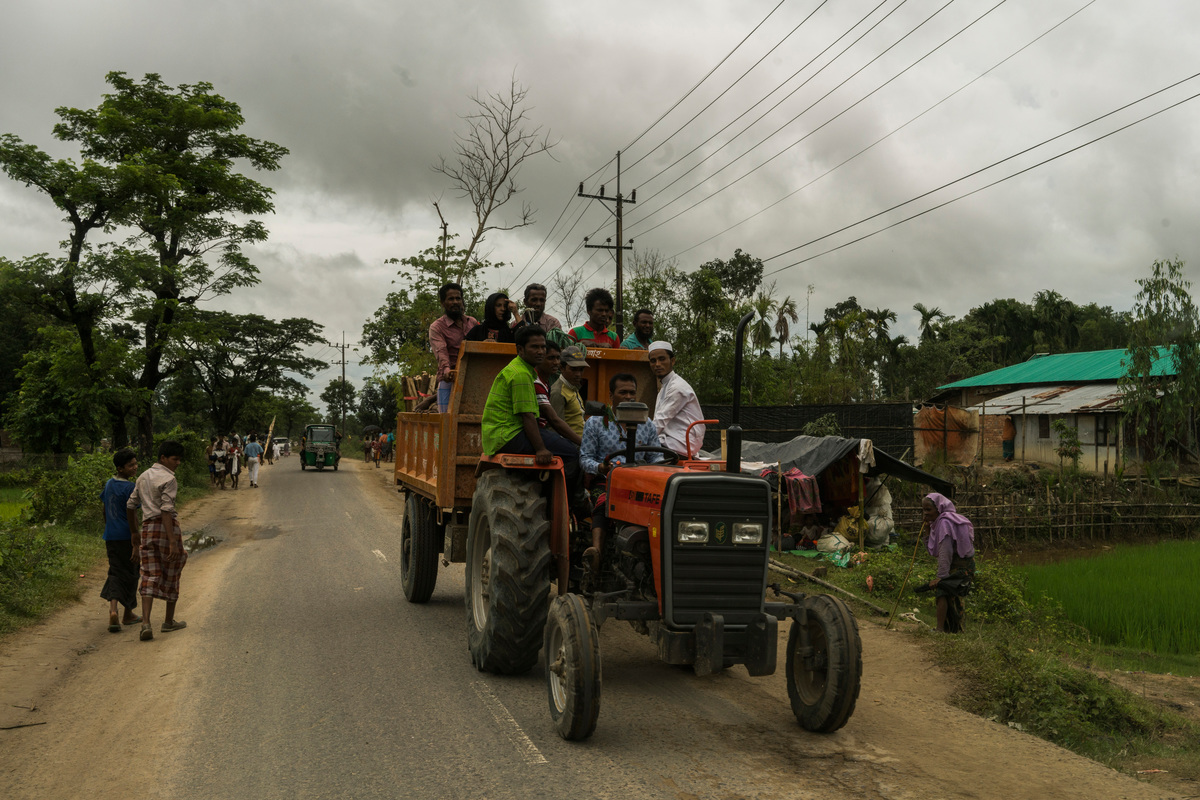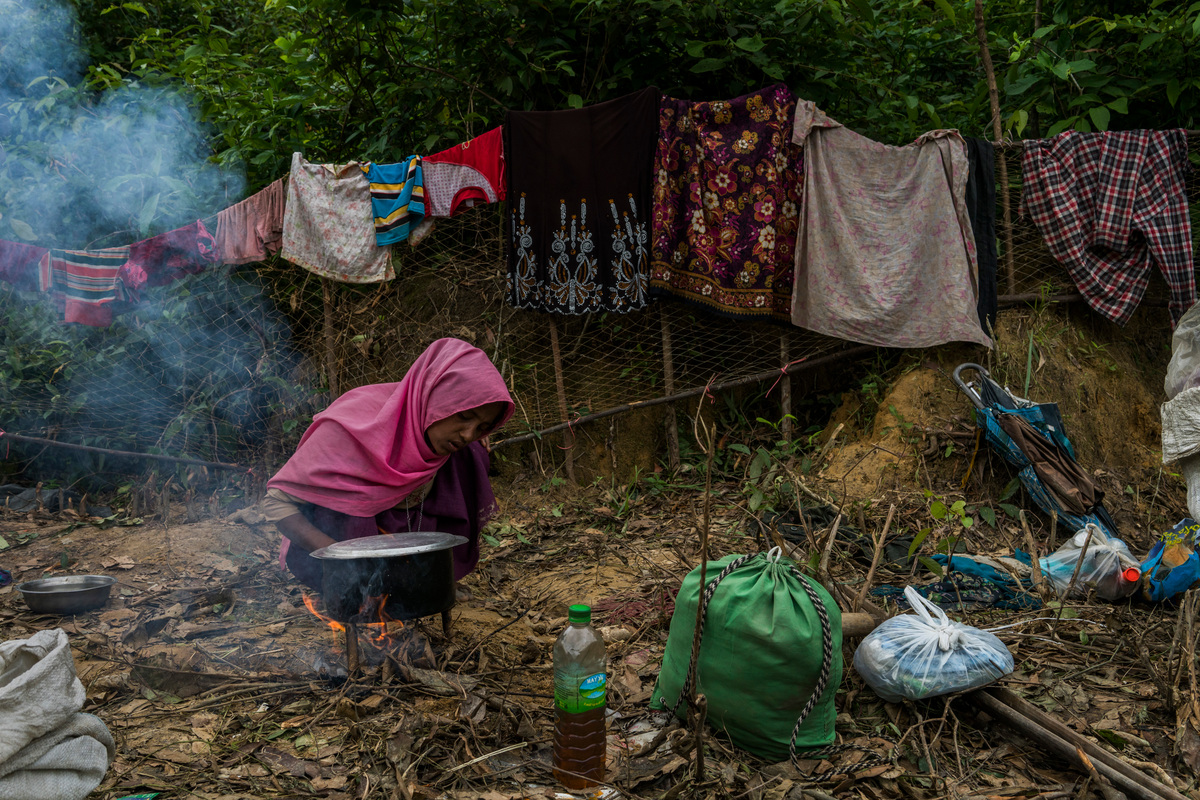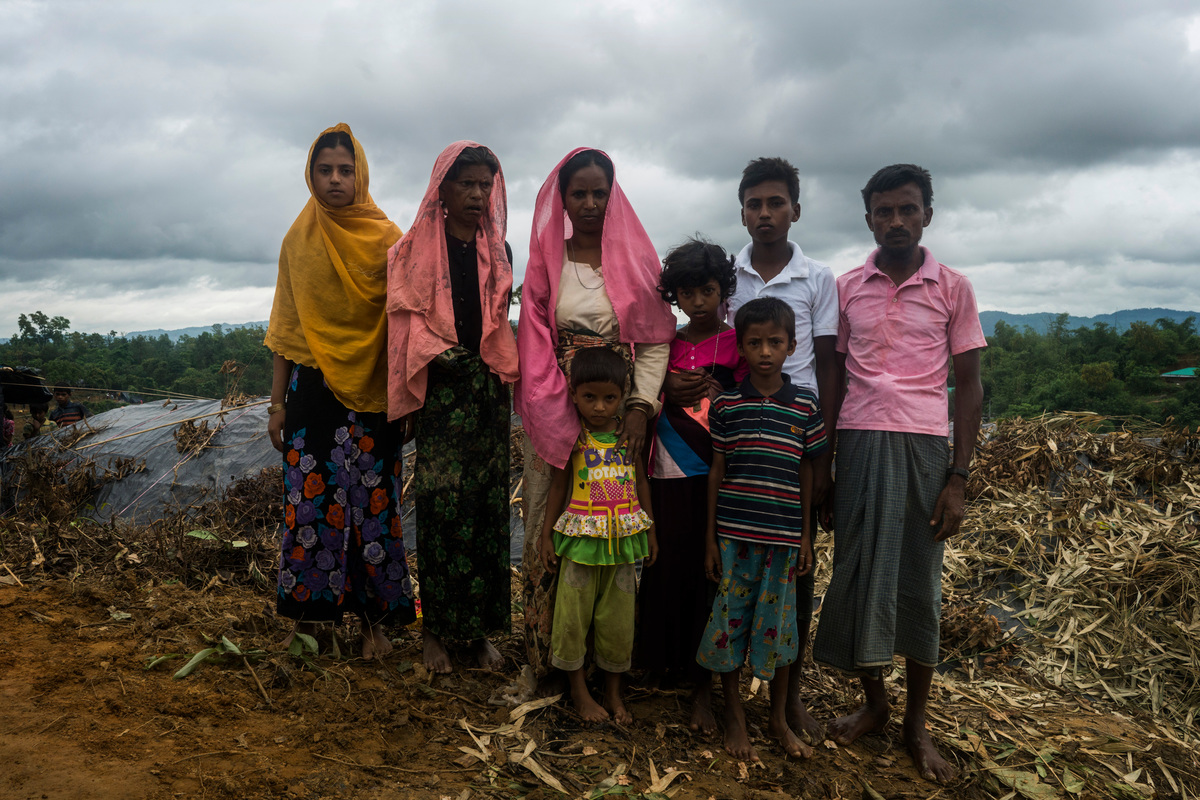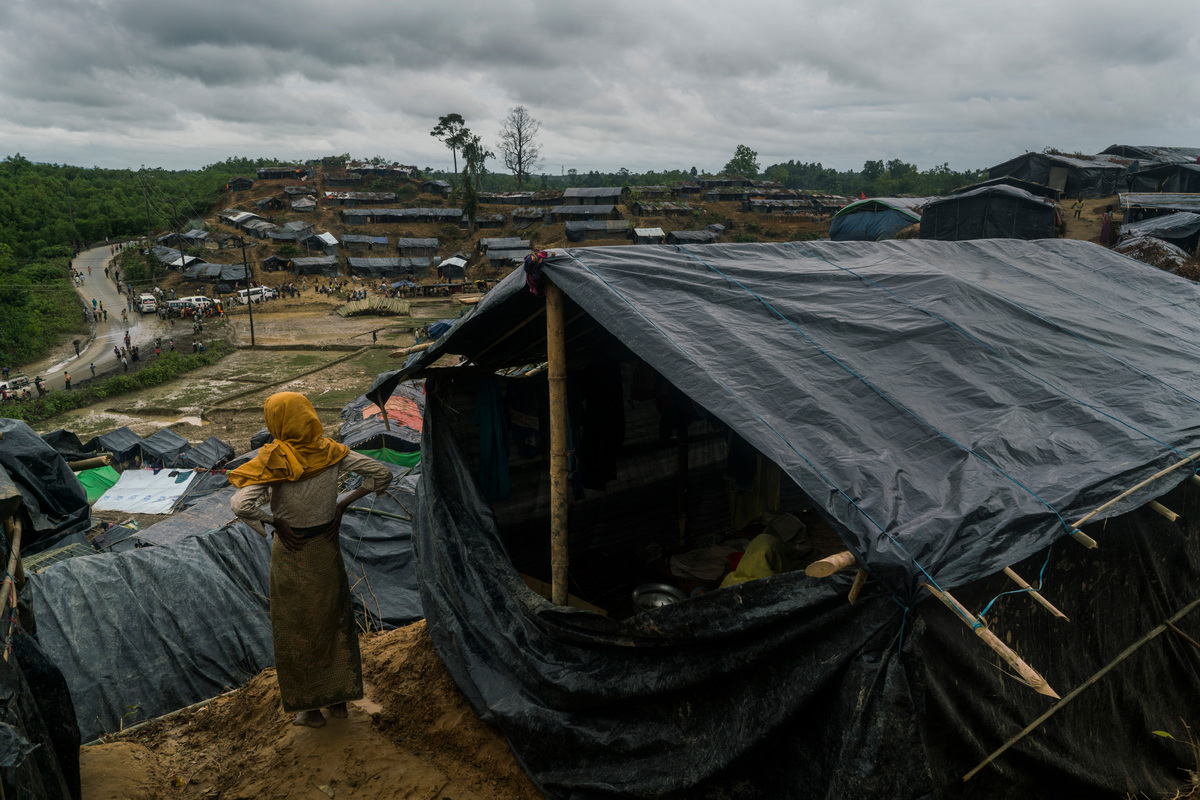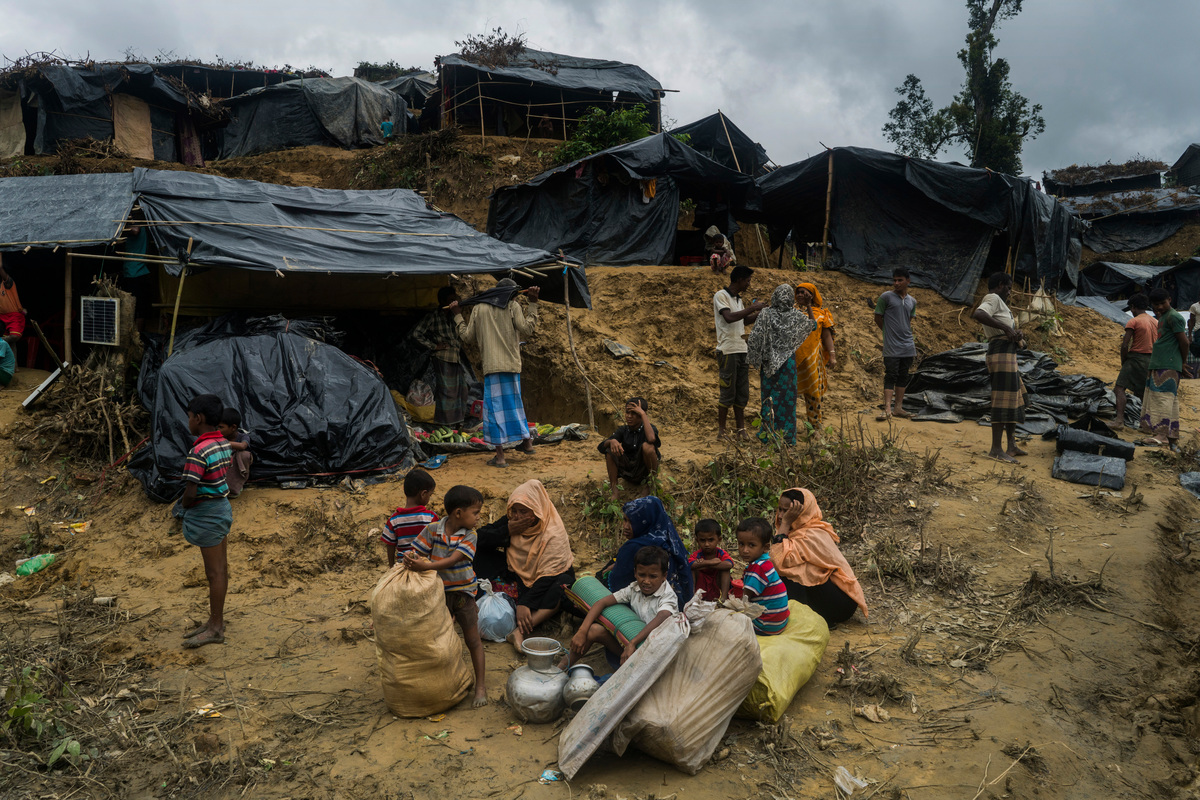Soaked and hungry Rohingya refugees seek shelter in Bangladesh
Soaked and hungry Rohingya refugees seek shelter in Bangladesh

THANGKALI, Bangladesh – “I have nothing,” says 45-year-old Jaheed Hussain, as he squats in his family’s half built shelter, offering feeble protection against monsoon downpours in Bangladesh.
Beside him the watery remains of his last meal slosh around in a bowl. “We brought food when we fled. It will last us two more days,” he says stoically, “as there is a God, he will provide.”
Jaheed and his family of nine have set up a bamboo shelter under a tarpaulin roof that a local Bangladeshi family gave them on the side of a muddy hill.
“I didn’t bring any money with me. Without the local people, we would have nothing now,” he says, pointing at the wooden mesh that he was preparing to use as a makeshift wall, but is now sinking into the mud next to him.
“We brought food when we fled. It will last us two more days.”
Jaheed, from Debunia in Maungdaw, said he fled when violence broke out in his village: “I saw five of my neighbours shot dead.”
From the summit of the hill, you can see across the border into Myanmar. A plume of thick white smoke rises and mixes with the monsoon-heavy clouds. “The village is burning,” says Jaheed. Testimonies from those who have just arrived say that there is nothing left.
The UN estimates that some 313,000 Rohingya refugees have fled to Bangladesh from Myanmar’s Rakhine state since the latest bout of violence began on August 25.
According to reports from those arriving, there are countless more still trapped in Myanmar trying to flee, or making their way through difficult terrain to reach the Bangladeshi border.
Thousands of newly arrived refugees flank the road leading from border areas to Ukhia, the biggest town near Thangakali. Many sit out on the roadside, surrounded by the few belongings they managed to grab when they ran for their lives.
Occasionally, local truckers, who are ferrying Rohingya refugees to and between the makeshift camps that dot the landscape, stop to offer them sacks of puffed rice.
Food has become a constant worry among the new residents of these hills. Hotija Begum, 35, and her husband Nur, 40, say that they have spent all the 50,000 kyat (US$37) that they bought with them, on the flimsy shelter that they have pitched. Nur’s elderly mother is nursed by her grandchild in the corner. Before they got here they camped on the Myanmar and Bangladesh border.
“We are living a beggar’s life,” laments Hotija, who wears a brightly coloured pink headscarf. “We wait by the side of the road and hope that someone gives us something.” Her seven children gather around her, three are sick with fever.
“I haven’t eaten in two days,” says Nur, as he lifts his T-shirt and pats his empty stomach. “Without food, we cannot survive.” An empty rice sack from Myanmar is stuck in the thick mud. Privately, Hotija and Nur worry that when the rains return, their weak and exposed shelter will collapse.
“We wait by the side of the road and hope that someone gives us something.”
At dusk, mobile phone lights and wind-up torches dot the landscape. The odd fire illuminates a woman cooking. At the foot of the hills, by the road, there are hundreds sitting in the mud. Aziza clutches a small bag.
“We are waiting here,” says the 50-year-old, her teenage sons crowding around. “I had tarpaulins, but when fighting started, I dropped them and ran.” Her husband was shot, she takes out a photo and points to the man in the middle. “I don’t know whether he is alive or dead.”
For the time being Aziza must focus on keeping her sons alive. “I last ate two days ago. Unless someone helps, we will starve.” Her hands delve into the small bag again, and she produces two battered documents. Pointing to two 1950s identity cards, she says “these are my grandparents.” Her sons are silent. They say that they doubt they will ever see home again.
UNHCR, whose tarpaulins flutter in on the hills at Thangkali, is working to provide food, water and medical assistance to the Rohingya new arrivals. The agency is providing life-saving support in the two existing refugee camps – Kutupalong and Nayapara – that have more than doubled in population since the influx.


